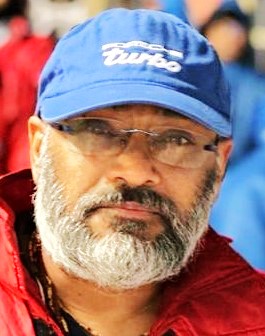Taracharan(Sadhubaba) was born on the auspicious day of Panchamdol (The fifth day of Dol Jatra or Holi Poornima). It was a Wednesday, 12th March 1879, in the village Gujra in the district of Chittagong, seven years before Sri Sri Ramakrishna Paramhansa left his mortal frame. Chittagong is one of the fifty-one ‘Shakti Pithas’. It also has a hot spring, known as Sitakund, where Devi Sita used to bathe.
Taracharan belonged to a religious Bengali Kayastha ‘Dutta’ family. One of his ancestors was a close associate of Sri Chaitanya Mahaprabhu. Before Taracharan was born, his deeply religious father, Sri Rasik Chandra Dutta, during a visit to Sitakund, had a dream in which Lord Shiva appeared to him and foretold about himself taking birth as his son. Taracharan cried incessantly after birth and wouldn’t stop until someone poured ‘charnamrita’ of Vishnu pooja in his mouth.
Until twenty-one years of age(1879-1900), Taracharan lived in Gujra. He completed his primary education but soon became indifferent to worldly education and left school. He though took an interest in and learnt astrology and palmistry. He preferred loneliness and seemed to remain absorbed in his own thoughts. From the very beginning, he displayed an extreme adherence to truth. He would censure anyone who lied and shun their company altogether. His mother, Amala Devi, who was also very religious, bore anxiety for her son, who was mostly lost in his own world. When she asked him how he would make ends meet upon growing up, Taracharan responded that he would have no needs. Taracharan would eat very little and only at his mother’s insistence. Sometimes he would go to a Buddhist temple near his village and sit in meditation. He would bow down to places of worship of all religions. He would talk to himself and bathe for long hours many times a day. Though of frail body structure, due to his unbroken vow of ‘brahmacharya,’ he was physically very strong and would defeat many wrestlers twice his size.
At age 21, Taracharan started residing in ‘Dalghat’ to take care of his widowed sister and her family. This was an important change in his life. Dalghat had a very old mandir of ‘Burha Kali’, where the deity of Goddess Kali looked like an old lady. It was built in an old graveyard and wore a dilapidated look, surrounded by tall bushes and trees. No one would dare to go there after dark. The priest would also close the temple before sunset. Taracharan would visit the temple many times a day. Taracharan would sometimes go into this jungle and talk to a human skull in inaudible words and then throw the skull up in the air, where it would remain steady. It would come down upon his calling, and he would hide it in the hollow of a tree. He would rush to touch the feet of Mother Kali in the temple but would be stopped by the priests. He would enter the temple at night and do his pooja. He would cry Maa Maa and dash his head upon the altar with such force that he would get deep cuts, and blood would spurt out like a fountain. The copious amount of tears he shed would flow like rainwater in the temple drain. He would offer flowers at the deity’s feet and talk to her. The priests would find flowers at the feet of the deity when they opened the temple in the morning. Suspicious and perplexed, one night, they waited near the temple and found Taracharan entering the temple. The temple lock opened at his touch. This made people realize Taracharan’s greatness for the first time. He was generally referred to as ‘Tarla Pagla’ (mad Tara) by the villagers.
Soon people recognizing his spiritual powers started coming to him. Without being told, he would call everybody by their names, listen to their problems, and provide resolutions. Generally, he would give them ‘charnamrita’ from the Kali temple, but in some cases would ask them to bring a green coconut which he would then touch and then bless them so that they would be alright. He was very strict, though, with people who told lies. Taking them to task, he would get their heads shaven before blessing them. He would know about other people’s thoughts and, for evil persons, would prescribe penances before blessing them. He would take on people’s sins and cure them of their ailments and problems.
